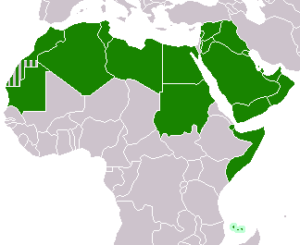 CAIRO, Egypt, May 25 (UP) Leaders of five Arab countries met at Amman, Trans-Jordan, today to decide whether to obey the extended United Nations demand that firing be stopped in Palestine.
CAIRO, Egypt, May 25 (UP) Leaders of five Arab countries met at Amman, Trans-Jordan, today to decide whether to obey the extended United Nations demand that firing be stopped in Palestine.
Egyptian sources reported that Arab leaders were in a defiant mood and expressed the greatest doubt that the Amman conferees would vote for compliance with the demand that firing cease by 7 P. M. tomorrow [1 P. M. in New York].
But a dispatch from Amman said that the Arab countries did not want to strain relations with the United Nations unnecessarily and might agree to a truce, provided it did not prejudice the present “favorable” position of the Arabs in Palestine or permit improvement of the Jewish position.
Would Avoid U. N. Penalties
Even Trans-Jordan, which is not a member of the United Nations and is the country most heavily involved in Palestine, is willing to consider a cease-fire agreement to avoid possible United Nations penalties, the dispatch said.
[A Reuters dispatch from Cairo said it was authoritatively reported that the Arab states reply would contain three conditions for agreement to a cease-fire-dissolution of all Zionist groups in Palestine, complete ending of immigration and non-recognition of the Jewish state.]
Present at the Amman conference were Premier Twefik About Hoda of Trans-Jordan and Riades-Solh of Lebanon, Interior Minister Moshen el-Barazi of Syria, Regent Abdul-Ilah and Foreign Minister Ahmed Pasha el-Rawi of Iraq and Abdul Rahman Azzam Pasha of Egypt, secretary of the Arab League. Yemen and Saudi Arabia, the other Arab League countries, were not represented.
Arab political circles suggested, the Amman dispatch said, that the United States as one of the sponsor of the cease-fire demand should patrol Palatine waters to prevent any supplies from reaching Palatine from abroad. The Arab League, possibly with neutral observers, would see that nothing slipped over the frontiers of neighboring Arab countries into Palestine, it was added.
In event of such an agreement the dispatch said, the Arabs suggested that Arab and Jewish forces should remain where they were until a final solution of the Palestine problem had been reached or negotiations had been broken off and fighting was resumed.
Harold Evans, American who was appointed “Mayon” of Jerusalem by the United Nations said here today he would not go to the holy city until there was peace Meantime, he said. he will spend a few days in Cairo talking to Arab leaders and trying to work out a peace agreement.
Britain Urges Truce on Arabs
AMMAN, Trans-Jordan, May 25 (Reuters)-It was understood that the British Government had advised the Arab League to accept the United Nations truce proposals on the grounds that it would be advantageous in the long run.
This point of view was not shared by the Arab leaders, who were unable to see what advantage they would get from a truce, and believed that it would grant vital time to the Zionists.